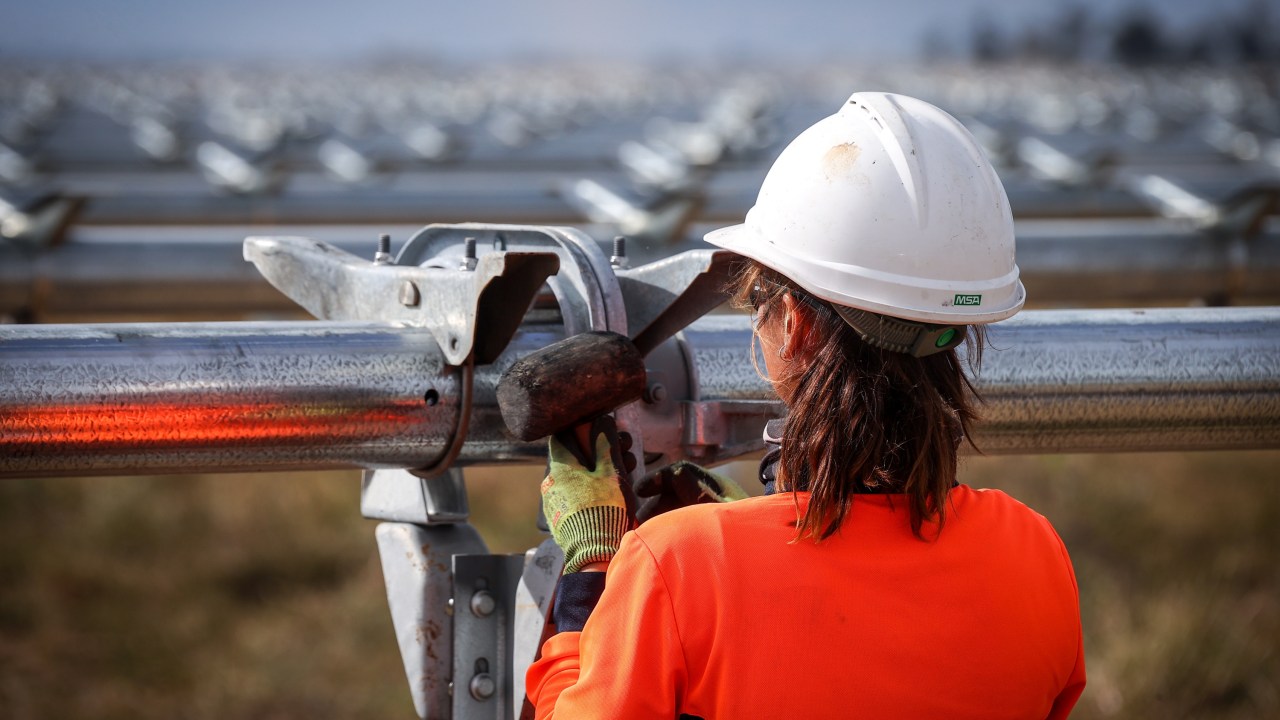88 fortunes slots casino games
2025-01-09
88 fortunes slots casino games
。
Global Genome Sequencing Market Set For 19.1% Growth, Reaching $19.87 Billion By 2028Legacy of Leadership: Reflecting on S M Krishna's Pioneering Role in Karnataka
Browns restructure QB Deshaun Watson's contract to create cap space, flexibility, AP source saysThe Government of Jammu and Kashmir on Friday ordered transfers, with immediate effect, of six IAS officers in the interest of administration. According to an order, Shantmanu, IAS (AGMUT: 1991), awating orders of posting in General Administration Department, has been transferred and posted as Financial Commissioner (Additional Chief Secretary), Higher Education Department relieving Dr. Rashmi Singh, IAS of the additional charge. “Shantmanu, IAS (AGMUT:1991) shall also hold the additional charge of the post of Administrative Secretary, Information Technology relieving Sh. Santosh D. Vaidya, IAS of the additional charge”. Shailendra Kumar, IAS (AGMUT: 1995) Principal Secretary to the Governent, Agriculture Production Department has been asked to hold additional charge of Administrative Secretary, Floriculture, Parks and Gardens Department with effect from 01.01.2025, in addition to this own duties. Sanjeev Verma, IAS (AGMUT:2001), Commissioner/Secretary to the Government, General Administration Department has been transferred and posted as Commissioner/Secretary to the Government, Social Welfare Department. M. Raju, JAS (AGMUT 2005), awaiting orders of posting in General Administration Department, has been posted as Commissioner/Secretary to the Government, General Administration Department, “He shall also hold additional charge of Administrative Secretary, Information Department bill further orders.” Ms. Sheetal Nanda, IAS (AGMUT:2006), Commissioner/Secretary to the Government, Social Welfare Department has been transferred and posted as Commissioner/Secretary to the Government, Department of Forest, Ecology and Environment relieving Shailendra Kumar, IAS of the additional charge. Ms. Rehana Batul, IAS (AGMUT: 2010), Secretary to the Government, Information Department has been transferred and posted as Director, Jammu and Kashmir Institute of Management, Public Administration & Rural Development.
U.S. Supreme Court justices have yet to decide whether they'll hear a case involving West Virginia's transgender sports law of 2021. WASHINGTON (WV News) — The bid by the West Virginia Attorney General's Office to have the U.S. Supreme Court decide the constitutionality of the state's 2021 transgender sports law remains pending. Morrisey Attorney General Patrick Morrisey's office filed July 11 asking the Supreme Court to take up the case. That came after the Fourth Circuit decided the state's transgender sports law — the Save Women's Sports Act — violated rights protected in the Constitution. Since West Virginia's initial petition, led by West Virginia Solicitor General Michael R. Williams, Deputy Attorney General Curtis R.A. Caperhart and West Virginia Assistant Solicitor General Spencer J. Davenport, several friend of the court briefings have been filed, while the respondent, the lawyers for a transgender West Virginia girl from Harrison County, responded Oct. 15 and the state replied two weeks later. The case was distributed for conference among the justices Nov. 15 and Nov. 22, but there's been no decision yet from the justices on whether they will hear the case. According to the brief from West Virginia, the two questions to consider are: Whether Title IX prevents a state from consistently designating girls' and boys' sports teams based on biological sex determined at birth; and "whether the Equal Protection Clause [of the U.S. Constitution] prevents a state from offering separate boys' and girls' sports teams based on biological sex determined at birth." The attorneys for the child, B.P.J, are Elizabeth Reinhardt of Cooley LLP in Washington, along with Cecillia D. Wang and David D. Cole of the American Civil Liberties Union Foundation in Washington, Aubrey Sparks and Nicholas Ward of the America Civil Liberties Union of West Virginia Foundation; and Tara L. Borelli of the Lambda Legal Defense and Education Fund Inc. of Decatur, Georgia. The child's attorneys frame the questions this way: "Does West Virginia's categorical ban violate Title IX as applied to B.P.J.?", and "does West Virginia's categorical ban violate the Equal Protection Clause as applied to B.P.J.?" However, the child's lawyers say the matter doesn't rise to the level of U.S. Supreme Court intervention. They contend that the office of Morrisey — who will become West Virginia's governor in January — is seeking "to create a false sense of national emergency when nothing of the sort is presented by this case." "This case involves one transgender girl — 14-year-old B.P.J. — and her as-applied challenge to H.B. 3293, a West Virginia law passed in 2021 that categorically bars transgender girls from playing on girls’ sports teams," the child's lawyers wrote. "B.P.J. socially transitioned in third grade; she has a West Virginia birth certificate officially recognizing her as female; and she has never gone through endogenous puberty — meaning that she has never experienced the effects of testosterone on her body that cisgender boys typically experience. "She was entering middle school when H.B. 3293 was passed, and she has been playing school sports since that time due to injunctions issued by the courts below. No other transgender girl is known to be affected by H.B. 3293 other than B.P.J. "Particularly given the lack of any circuit split on the questions presented, forthcoming federal regulations addressing transgender participation in athletics, and the interlocutory posture of this as-applied challenge — which the Fourth Circuit remanded to the district court for further development of the record — there is no reason for this Court to step in." The West Virginia Attorney General's Office lawyers see it much differently. "Schools have long separated sports into boys’ and girls’ teams. Drawing this line guaranteed that women and girls had a real chance to compete safely and fairly. Important laws like Title IX of the Education Amendments of 1972 then ensured that boys’ and girls’ sports teams received equal support. Women’s sports flourished," they wrote. But the Fourth Circuit majority's "holding upends the Title IX and equal protection frameworks," they wrote. "It tacitly overturns countless cases upholding sex distinctions for bathrooms, prisons, physical-fitness tests, and more. It rewrites Title IX, a law designed to protect female athletes, into one that subordinates their interests to those of certain males. It dispenses with any meaningful effort to determine how males are similarly situated to females when it comes to sports ... "The Fourth Circuit’s decision will produce a 'commingling of the biological sexes in the female athletics arena” that will 'significantly undermine the benefits' that separate sports teams 'afford[] to female student athletes.' ... This Court should set things right. The Fourth Circuit’s splintered decision casts into doubt similar laws in at least 24 other States, sows confusion about antidiscrimination law, ignores scientific evidence, and renders school sports an un-administrable morass. In the end, the decision all but declares that any law recognizing differences between sexes is unlawful whenever that law runs counter to someone’s 'gender identity.'" The U.S. Supreme Court on Dec. 4 heard arguments over a Tennessee case that involves bans on transgender medical procedures, and is poised to rule. It's possible the high court's ruling in that case could moot, or at least partially moot, some of the issues in West Virginia's B.P.J. case. "The Supreme Court heard oral arguments [Dec. 4] in United States v. Skrmetti, arguably the most important transgender rights case the Court has ever heard," wrote Ian Millhiser, a senior correspondent for Vox. "The case asks whether discrimination against transgender people can violate the Constitution — and it appears most of the justices feel it does not. The likely result is that the Court will allow states to ban health procedures that enable gender-affirming care, both for minors and, potentially, adults," Millhiser wrote.
The Philippine bamboo industry has an "enormous" potential for bigger and higher-value exports to the global market, according to the Asian Development Bank (ADB). "The Philippines' major bamboo species, Dendrocalamus asper , is known as the giant bamboo because of its massive culms and towering heights. Compared with other bamboo species, which are superior in carbon capture and sequestration over many tree species, D. asper has a more robust carbon-fighting capability," the ADB noted in a report. As such, the Manila-based multilateral lender cited that the local variety is "highly suitable for engineered bamboo products, bamboo-based paper, textiles, and biofuels." "Realizing the potential of bamboo as a nature-based solution, government officials have proposed legislation to strengthen the Philippine Bamboo Industry Development Council, update the government’s bamboo industry development strategy, incentivize the establishment of financing facilities for bamboo forests and enterprises, and support bamboo entrepreneurs in developing high-value bamboo exports," the ADB said. While the Philippines is already the world's sixth-largest bamboo exporter, the ADB pointed out the majority of its products sold abroad consisted of merely low-value, unprocessed poles. "In 2021, investments in the local bamboo industry were estimated at only $1.6 million, with domestic sales of $2.56 million, supporting 10,898 jobs and 5,012 micro, small, and medium-sized enterprises. However, the potential is enormous," the lender said. "The Philippines can aspire to a greater share of the global bamboo market, which was estimated at $71.6 billion in 2023 and is expected to grow to $92.62 billion by 2027. With the country's huge residential and commercial construction requirements, engineered bamboo can be a tremendous source of sustainable material," it added. The ADB urged addressing constraints to Philippine bamboo industry growth, including the exclusion as a construction material under the national building code. Also, "the industry continues to be constrained by uncoordinated programs, limited financing facilities, and outdated technologies," the ADB lamented. In this regard, the ADB has extended a $570,000 technical assistance special fund to the Philippines and Nepal so these two countries can harness bamboo for climate action as well as green growth. Like the Philippines, the ADB noted that Nepal's bamboo industry is also "underdeveloped" and small at present, but shows "significant growth potential." "With more than 80 species of bamboo and about 63,000 hectares of bamboo forest, primarily in the Terai and hilly regions, [Nepal] can substantially expand its bamboo industry. However, in 2020, the export value of bamboo products was estimated at only $587,882," the ADB pointed out. To unlock bamboo's potential as a nature-based solution, the ADB urged these two developing member-countries to broaden awareness of its commercial potential; deepen appreciation of its ecological and environmental value; establish financing facilities supportive of enterprise development; incentivize adoption of new processing.technologies; and strengthen their bamboo development policy regimes. Through its technical assistance, the ADB aims to demonstrate bamboo's investment potential as a high-value product for sustainable construction and manufacturing as well as carbon markets; support national strategic plans for its supply chain and industries; as well as deliver bamboo capacity-building and knowledge activities for public institutions and private industry players in both the Philippines and Nepal by 2027.
Vikings staying on track and in control behind DarnoldLuxury car boom: Six vehicles over Rs 50 lakh sold every hour in India in 2024
Related hot word search:
Previous: online casino games no deposit
Next: all online casino games




